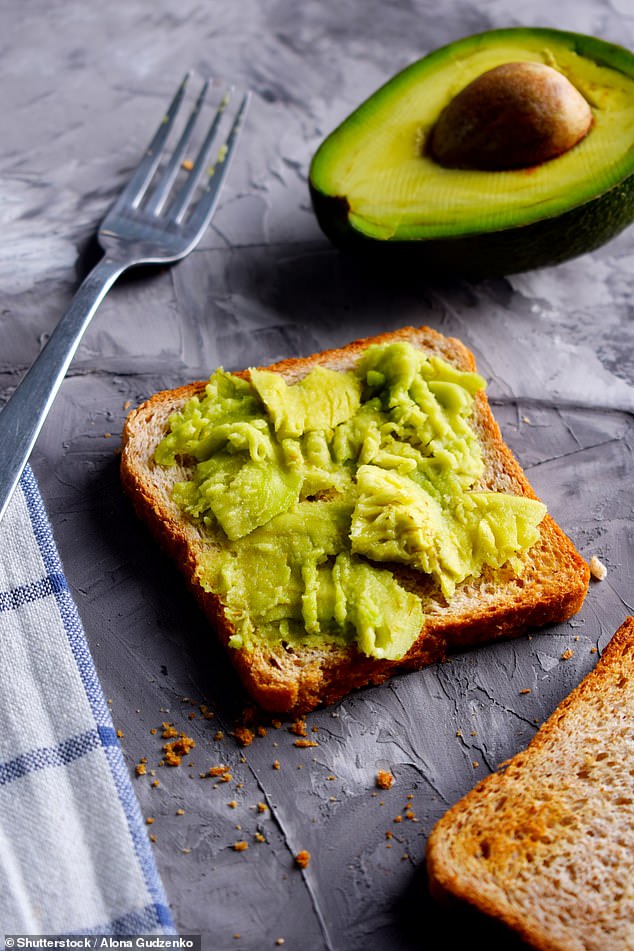An avocado a day could help fight the belly fat that’s linked to diabetes.
British researchers split 105 overweight adults into groups and, after 12 weeks, those who had been given avocados in their diet had significantly less visceral fat.
High levels of this type of fat, which surrounds internal organs, has been shown to predict the likelihood of a person developing type 2 diabetes.
Richard Mackenzie, a professor of life sciences at the University of Roehampton in London and co-author of the study, suggested the high quantity of fibre in avocados, which slows down the digestion process, was keeping participants fuller for longer and so less likely to snack.

Richard Mackenzie, a professor of life sciences at the University of Roehampton in London and co-author of the study, suggested the high quantity of fibre in avocados, which slows down the digestion process, was keeping participants fuller for longer and so less likely to snack
Warning on selfie eating disorders
A short animated film has been created to warn of the dangers lurking in social media for people with eating disorders.
The video is based on testimonies from sufferers who say their illness was exacerbated by the food and body image content on social media apps, including selfies on Instagram and WhatsApp.
It offers advice for coping with images that undermine self confidence, and comes as NHS figures showed demand for eating disorder services had quadrupled in young people since the start of the pandemic.
Paula Saukko, co-author of the research carried out at Loughborough University, said: ‘Social media encourages users to compare themselves to others in terms of looks or success, and foments constant engagement, replies and insecurities when others are not responding or reacting.’
Prescriptions for highly addictive painkillers have soared in the past year among patients on NHS waiting lists for hip replacements.
A study by researchers from the University of Aberdeen looked at the demand for potent opioid drugs, such as codeine and tramadol, in more than 400 patients, and found it had risen 40 per cent compared with pre-pandemic levels – despite official guidance saying they should be used only as a last resort.
Experts now warn that thousands of Britons could be at risk of developing an addiction to the strong painkillers – which has led to hundreds of thousands of deaths in the US – and urge doctors to find alternative methods for managing severe pain.

A study by researchers from the University of Aberdeen looked at the demand for potent opioid drugs, such as codeine and tramadol, in more than 400 patients, and found it had risen 40 per cent compared with pre-pandemic levels
Britons have taken a surprising interest in rowing since the start of this year, according to new data. Online searches for smartphone apps related to rowing have risen by 27 per cent since January – higher than searches for apps about any other fitness activity. Conversely, the research by mobile phone retailer Affordable Mobiles found a dramatic year-on-year decrease in searches for running, walking and yoga apps. The researchers suggest the previous frenzy for these apps died down when gyms reopened after lockdown.
Source link : https://www.dailymail.co.uk/health/article-10004191/HEALTH-NOTES-Avocados-trim-hidden-body-fat.html











